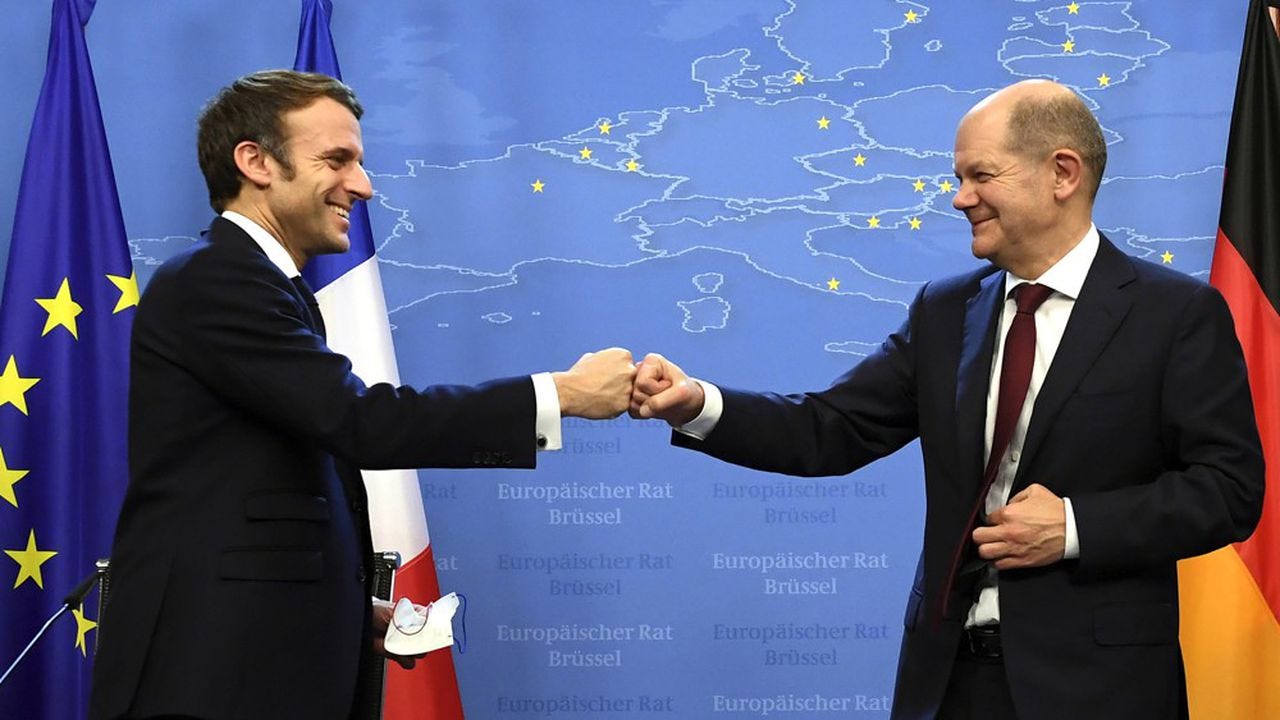Drought, Gas, Inflation, Recession … Europe in Desperate Search of Unity.
European cohesion will be tested more than ever in the months to come.
The European Union has been hit by the most severe drought in five centuries. A barbaric war has been raging on its doorstep for the past six months, driving up the cost of energy, raising inflation in the eurozone to 9.1% over the past year, and forcing its largest economy to urgently rethink its economic model.
The EU could quickly fall into recession.
Tensions between the United States and China continue to rise, and Boris Johnson's departure from office has not marked the end of the farce at Westminster. In such a dramatic picture, Europeans would do well to close ranks. “When, if not now, will we overcome the differences that have held us back and divided us for years,” asked Olaf Scholz, the German chancellor, in concluding his speech on the EU in Prague at the end of August 2022.
Germany criticized when it calls for solidarity
It is true that the EU-27 subsequently agreed on joint assistance to the Ukrainian army and visa restrictions for Russian citizens. But the latest events do not give cause for optimism. The momentum generated by the Russian aggression in February 2022 has evaporated.
During the negotiations at the end of July 2022 on a plan to reduce gas consumption, deep differences appeared between the countries most dependent on Russian supplies and the others, in a poisonous atmosphere where resentment was growing.
While Germany called for solidarity, the member states that had been hit hard by the sovereign debt crisis ten years ago reminded Berlin that instead of “solidarity” they had been lectured on their supposed fiscal laxity at the time. And they had been subjected to humiliating austerity measures.
Viktor Orban, Hungary's “illiberal” Prime Minister, has negotiated with Moscow for additional gas deliveries, a new provocation. Poland, the other troublemaker of the Union, is not to be outdone. After Commission President Ursula von der Leyen declared the justice reform adopted by the Sejm in the spring of 2022 to be insufficient, Jaroslaw Kaczynski, the president of the ruling Law and Justice Party, once again stepped up his verbal attacks.
According to him, Brussels would like to force Warsaw into “total submission to Germany,” but Poland is ready to take out “all its guns” and to use its right of veto on European decisions that require unanimity. Hungary and Poland, two countries where violations of the rule of law are not only evident but now almost claimed, have not yet received any money from the recovery fund. This could become a problem if the economy continues to deteriorate.
Western Balkans eager to enter
The member states most mobilized against Moscow reproach the others for what they see as lukewarmness, as illustrated by the debate on visas for Russian nationals. Poland and the Baltic States have called for the EU to stop granting visas for moral reasons, but Paris and Berlin, in particular, want to maintain contact with the Russian population.
The atmosphere remains tense at the margins of the Union, in the Western Balkans, which are demanding an acceleration of their integration after Ukraine and Moldova were granted candidate status.
At the beginning of July 2022, an agreement reached in a hurry between Bulgaria and northern Macedonia (over long-standing cultural and linguistic disputes) made it possible to officially open accession negotiations with Skopje (and Tirana, which was in the same boat). But at the end of July 2022, new administrative demands by Kosovo on its Serbian neighbors almost got out of hand. It took weeks of patient mediation to clear the situation.
Italian political uncertainty weighs on the mind
The European Political Community, this new pan-European structure desired by Emmanuel Macron to give the countries of the neighborhood advantages and facilities before their effective membership, will indeed hold its inaugural session in October 2022 in Prague.
But there will be many question marks, especially since Bosnia-Herzegovina, a failed state, will have held general elections just before. Italy will also have voted at the end of September 2022. The announced departure of Mario Draghi already leaves a big gap, but the possible arrival at the Palazzo Chigi of Giorgia Meloni, whose national-conservative party Fratelli d'Italia is leading in the polls, would cause a shock wave.
At the European Council table would sit three hard-right, anti-EU leaders - if one can anticipate the Meloni method. Italian rates could then soar...
In France, Emmanuel Macron, who has repeatedly irritated the countries of the eastern fringe of the Union, will be very much absorbed by a restless Assembly. Across the Rhine, Olaf Scholz, caught up in old scandals, is multiplying his blunders, without giving the Germans the impression of setting a course. The Austrian Chancellor and the Greek Prime Minister are weakened. In the Swedish parliamentary elections of September 11, 2022, the far right could win one in five votes.
Yet, in the coming months, the EU-27 must agree on new budgetary rules that will allow massive investment, reform the functioning of the European electricity market, find ways to counter inflation, and secure supply chains.
And probably to deal with a gas shortage. Together! European cohesion will be tested more than ever in the months to come.




